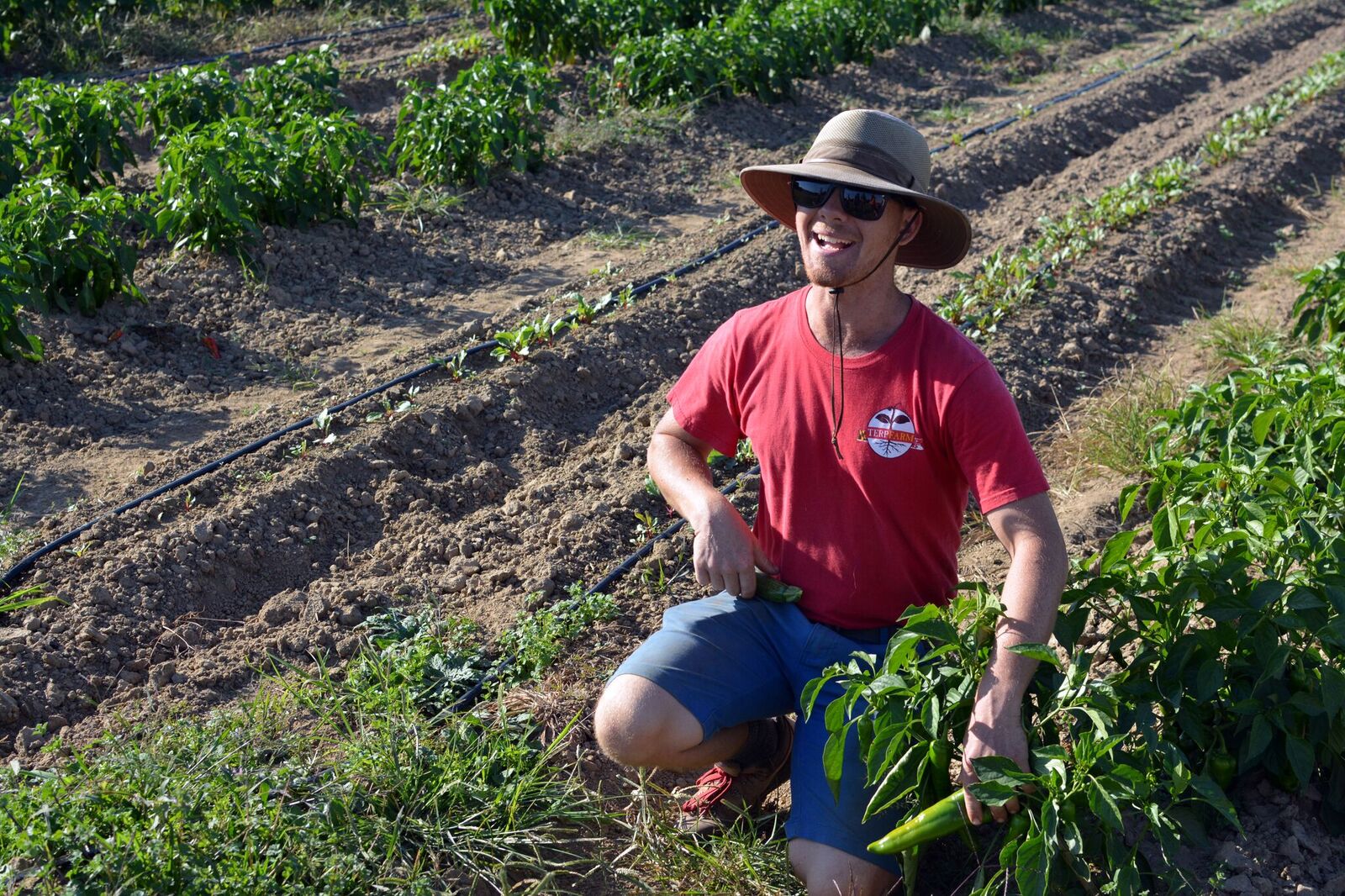In an effort to educate University of Maryland students, faculty and staff about local and sustainable agriculture, Dining Services held the first of six guided tours of Terp Farm in Upper Marlboro on Friday.
These trips, called “Food Learning Journeys,” provide members of the campus community with a deeper understanding of how their food is produced and where it comes from, said Allison Tjaden, the assistant director of new initiatives for Dining Services.
In the past three years, the farm has produced nearly 30,000 pounds of produce using sustainable practices, said Jack Murphy, an intern with Dining Services who has worked extensively with the Terp Farm project. While that number may sound like a lot, he said, it represents less than 5 percent of this university’s total consumption.
“We represent a small drop in the bucket, but it’s a step towards being sustainable,” said Murphy, a junior environmental science and policy major. Dining Services aims to have 20 percent of dining hall food served on the campus to be sustainably produced by 2020.
[Read more: University of Maryland’s Terp Farm has produced nearly 30,000 pounds of food in 3 years]
After about a 30-minute bus ride, Murphy and Guy Kilpatric, the manager of the farm, gave those who signed up for the trip a full tour of the fields, greenhouses and barns. In addition to helping guests pick banana peppers, tomatoes and flowers, Terp Farm staff explained how they plant and harvest their crops, potential issues in doing this and the importance of the farm’s goal to promote sustainable agriculture.
About eight people attended the first trip, but more people have signed up for later trips, Murphy said.
Rhianna McConnell, a sophomore psychology major who attended the first trip, said she decided to come because she enjoyed attending last year’s Harvest Festival, where she painted pumpkins and got to look around the farm.
“This year, we did learn a lot more about the farm than last year,” McConnell said. “Last year, it was more about getting people to come, but this time it was more informational.”
In previous years, the annual Harvest Festival was held on the farm, Tjaden said, and attracted between 600 and 800 students. This year, the fall-themed celebration featuring food, games and music was moved to campus in an effort to decrease expenses and increase its reach.
Kilpatric said he was excited for the process of showing students the farm in a more “intimate” setting and described the process of becoming familiar with food production as “empowering.”
“Eating is a very intimate act — each one of us is having a unique experience in terms of what we’re putting into our bodies,” Kilpatric said. “So it’s powerful to just gain even a little bit more perspective or understanding or appreciation for what it takes to do that.”
Terp Farm, which is located about 15 miles from College Park, was founded almost four years ago with a grant from this university’s Office of Sustainability. Located on the Western Maryland Research and Education Center’s Upper Marlboro Facility, the farm consists of about five acres of vegetable plots and greenhouses.
[Read more: UMD’s transition to Anytime Dining has saved more than 6 million disposable products]
Management of the farm is a joint effort between Dining Services, the Office of Sustainability and the agriculture and natural resources college. In addition to serving as a research facility for students and professors, food grown on the farm is used in campus dining halls, restaurants and catering.
“We still want students to have the opportunity to come out to the farm, but we want students to be able to have a more individualized experience when they’re out there,” Tjaden said, explaining that the idea to offer Food Learning Journeys was a direct consequence of moving the location of the Harvest Festival.
“When you come out to a farm with 500 other people, you’re not really going to get a one-on-one experience, talking with the farm manager, answering and discussing questions,” she added.
Murphy said he hopes many students sign up for the trips so that they can gain a better understanding of the efforts to plant, grow and harvest food.
“To me, the most important role of Terp Farm is connecting students back to knowing where their food comes from,” he said. “I think in our country, and a lot of the food system in general in the world today … there’s sort of a disconnect between the farmers growing the food and the students or people consuming the food.”
Food Learning Journeys will take place every Friday afternoon from 2:30-5:30 until Nov. 10, Tjaden said. Students can sign up for free on the Terp Farm website.



